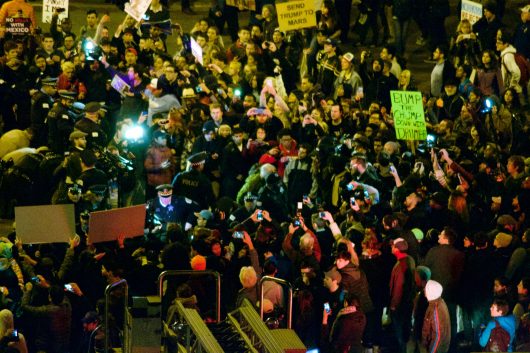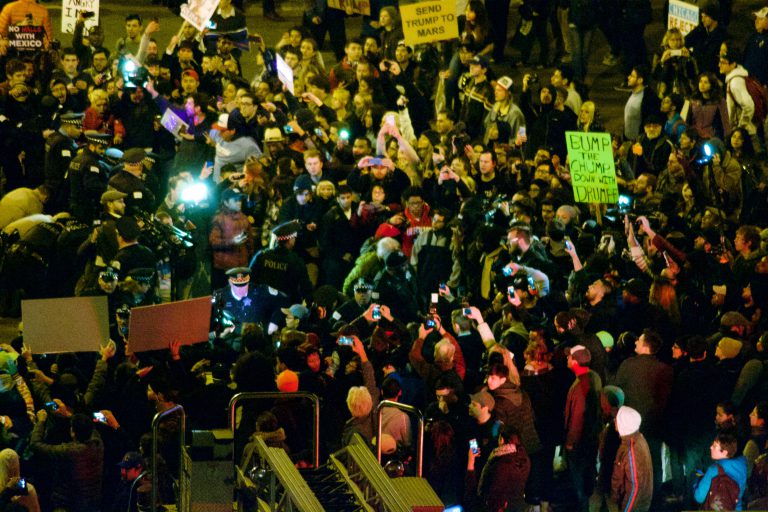
An anti-Trump protest in March
As one of the oldest free speech organizations in the country, NCAC understands the increasing need to work not only reactively to counter censorship, but also proactively, to promote speech and conversation around issues that provoke conflict.
Tolerating opposing viewpoints does not mean agreeing with them. But when, rather than offering reasoned disagreement, the opposing side demands its opponents to just shut up because their views are “unacceptable,” “offensive” or just wrong, any opportunity for conversation is lost. When a university radio station does not allow an author it has invited to read a sentence that expresses a view contrary to that of the student producer, an opportunity is lost; when a museum or an arts program cancels or paints over a public work of art because its controversial content may offend, an opportunity is lost; when a city paints over a mural or an art museum disinvites a speaker because of unorthodox representations of race, an opportunity is lost.
When one side is silenced there is no possibility to have any kind of argument, no possibility of finding ways to build common ground. We remain fractured and increasingly antagonistic.
It may be difficult to hear silence amid the clamor of activists on every side advocating for multiple causes, but it is precisely this silence that we need to discover. I am talking about the silence that can be found beyond the campaign slogans and social media hashtags, the silence that can give us a way forward: for a reasoned debate, for a conversation between people who disagree but are willing to also listen and explain why they disagree.
There is no magic bullet that will make us listen to each other while we disagree, but one step in that direction is to begin to reconstruct a true public sphere – one where ideas and viewpoints can be shared across ideological divides, where we can argue passionately and question opponents, but not merely dismiss them.


